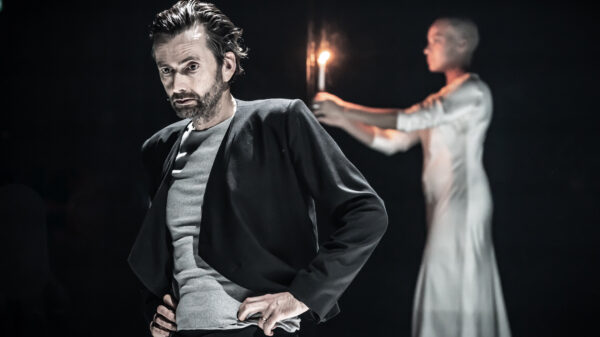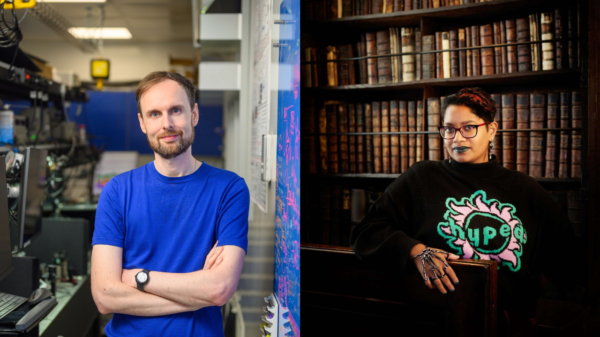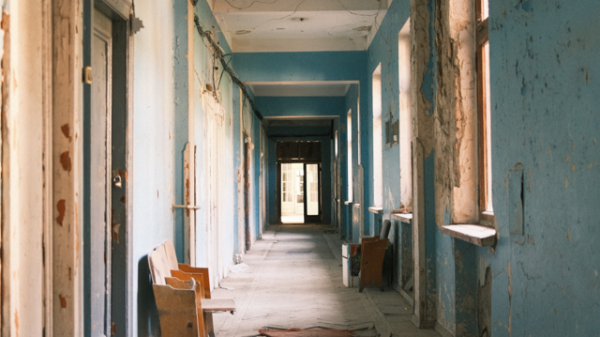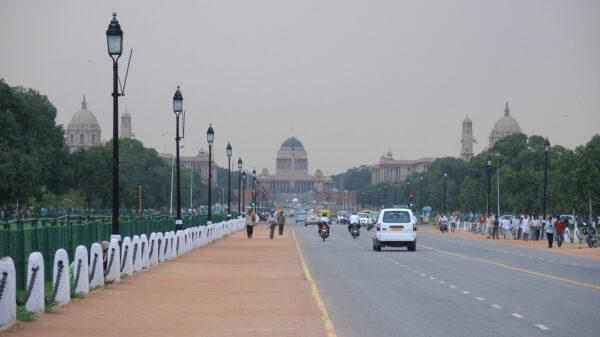Culture Editor Alex Blank discusses Alison Wisdom’s 2021 novel “We Can Only Save Ourselves” and its depiction of heterotopias.
Enclosed worlds are not made equal. There are spaces, such as Wonderland or Hogwarts, where one has no control over whether they’re eligible to enter, or how they might enter. Then there are the more tangible, intimate, sometimes claustrophobic spaces, such as one’s own room or apartment. There are also spaces in-between: open and closed, independent yet watched. Such worlds are explored in Alison Wisdom’s 2021 novel “We Can Only Save Ourselvesâ€, where the protagonist, Alice Lange, instead of falling down a rabbit hole, enters a strange man’s truck and drives off into the delusional sunshine.
There are two parallel “worlds†portrayed in Wisdom’s book. One is the small town whose inhabitants serve as a plural narrator of the novel. The other is the world Alice walks into: a run-down house where she moves in with Wesley – the guy with the truck who lures her in by taking her picture and making her feel special, “like something lovely and strong and ancient†– and his female companions. Although Alice is convinced she’d run away to gain freedom, she lands in another enclosed universe of rules, power dynamics and toxicities, the latter of which becomes blatantly clear in a slightly surreal scene where she kills their neighbours’ small dog for Wesley’s benefit.
What makes a world? one might ask. The plural narrator believes the small town, their world, keeps everyone safe, that Alice shouldn’t have run away because anything outside is dangerous. Wesley tells the girls similar things – that they’re safe only with him, that the world is falling apart and they’re the only ones awake enough to survive it (though he never specifies what being awake actually entails). In reality, both Wesley and the small town express the same fear: that the outside world is dangerous because it is outside of their control. The only reason for someone to truly own something, after all, even something as seemingly vast as a world, is to create borders and keep one’s children, followers, lovers or partners in.
In order to maintain such a world, one needs to make sure its inhabitants are as helpless as they can be. It’s not surprising, then, that those held most tightly inside are children, girls and women, all of whom are typically considered dainty and fragile, and that is exactly how Alice has been treated her entire life. Worshipped by everyone – her mother, other parents, her peers – her status deems her untouchable; by beauty, but also femininity, delicateness. Alice grows up believing that her power lies in the actual lack of it, as if being anything other than pretty, obedient and radiant would only make her anonymous and ordinary. “She would be authentic, the way Wesley liked herâ€, she thinks at one point, yet she only ends up moving from one enclosed world to another, both governed by people who love her only if that love remains synonymous with power.
“What we’re doing here, Wesley and me and the others,†says Katherine, one of the girls, “we’re our own country. Our own little nation. Or maybe even more than that. Like a whole private world. We don’t answer to the rules of the other world.†This private world, along with the novel’s unnamed small town, might be seen as examples of heterotopias. A term coined by Michel Foucault, heterotopias are spaces that are ‘other’, and unlike utopias or dystopias, they are situated in the real world. These spaces have their own systems of opening and closing, rituals, dynamics, and they exist both in relation to and in separation from their surroundings.
In spite of their seeming otherness, however, their relatively small sizes and specificities are what allows heterotopias to work as an externalisation and intensification of real places in the world. As in Wisdom’s small town, beauty is revered everywhere, and like the first-person plural narration of the town’s women, the powers innocently governing our lives merge their voices together to sound like an overarching yet invisible choir, a kind of white noise that pretends to narrate while, in reality, it controls. As in Wesley’s home, in every space there is a ruler, as well as those who submit. In every space, there are mind games and role playing, and once secrets are spilled, it feels impossible to get out.
If we consider every space, no matter how big or how small, to some extent pathological, then can we ever get out? Can we ever enter a neutral space, free from labelling, ideology, power? Isn’t our own mind a constraint in itself? Even if we lock ourselves us in our rooms, willingly or unwillingly, many of us are unable to turn off the virtual space, which seems too embedded in our every breath to be considered ‘other’, yet its ritualised patterns – the finger gestures on phones, the selfie-taking, the keyboard-tapping, the endless scrolling – make it more enclosed and significant than anything else. The question remains: are we enclosed along with it? And are we ever truly safe?
It seems as though the only temporary way out are waiting rooms. At doctor’s appointments, in cars or other vehicles, on our own two feet. But we cannot always be patients or drivers, or flâneurs/flâneuses, and movement might only be another variation of getting lost. Even in the practice of mindfulness or meditation, though they can be therapeutic for many, it is questionable whether they result in finding or losing oneself.
To come back to Wisdom’s novel, what I think is a possible lesson here is the importance of self-knowledge, being aware of what we want and seeing ourselves for who we are. Alice may be beautiful and admired, but she is too sheltered, too trapped, too pretty, too closed off, to be able to look at herself and the world from a neutral standpoint, with hope and hesitation, confidence and caution.
By the end of the book, the small town ensures that the future children/girls/women remain protected, as they decide to create a gate disallowing strangers from entering: “We are working to make things safe and good here so that we don’t have to leave, so that everyone who is here can stay. We can’t take care of the whole world, after all. We can only save ourselvesâ€.
Perhaps there is truth to this. But first, we need to know who “we†are. So, if every space we’re in is by default limited, the least we can do is to stand the little piece of ground we have at any given moment with certainty, independence of thought, and self-awareness. And with a way out.

















